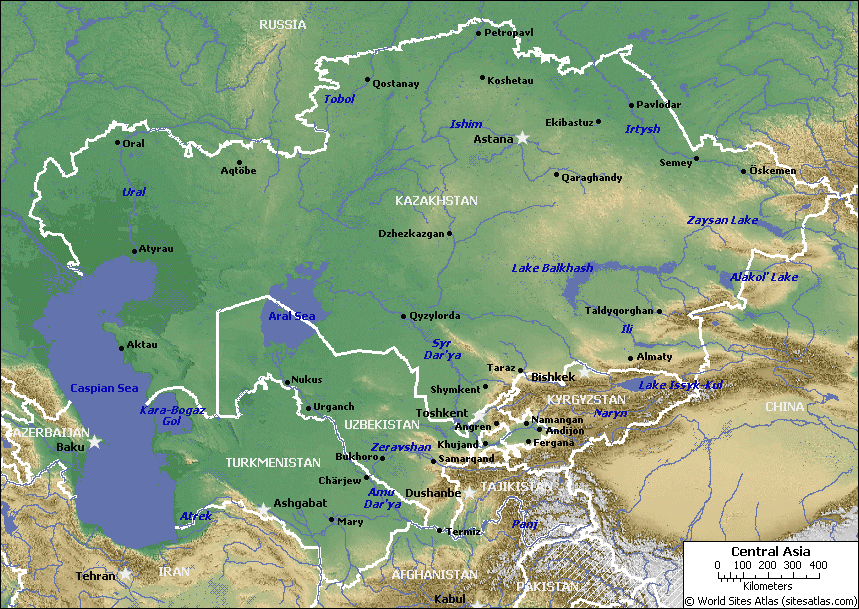
Published 29-11-2012, 11:54
 Catherine Ashton, EU's High Representative for Foreign Affairs and Security Policy, embarks on a tour of the Central Asian region. She will visit Kyrgyzstan first. Some experts even expect adoption of a new document on EU-Central Asian cooperation.
Catherine Ashton, EU's High Representative for Foreign Affairs and Security Policy, embarks on a tour of the Central Asian region. She will visit Kyrgyzstan first. Some experts even expect adoption of a new document on EU-Central Asian cooperation.The current program of Europe's cooperation with Central Asian countries was drawn by Germany. It expires in 2013. Alexander Rahr of the German-Russian Forum is of the opinion that "Ashton's visit to Central Asia is supposed to demonstrate that the European Union promotes its own policy in the region and that it is interested in advancement of relations with Central Asian countries."
It was announced once that Brussels would raise $750 million for Central Asian countries so that they quite reasonably expected that the European Union intended to become the sponsor of their reforms. The European Union in its turn was interested in partnership with these countries - stability and security of the post-Soviet zone has always been one of the top priorities of Western politics. "Anyway, the European initiative got stuck at one point... first and foremost because of the economic crisis," said Rahr.
"When the EU-Central Asia strategy was adopted, everybody fully expected that clauses of the Maastricht accord would be developed in new documents. The situation in Europe was different then, there was no crisis to bear in mind and adjust to... There is a crisis now. Besides, the EU itself encountered certain constitutional problems when the EU-Central Asian cooperation strategy was being launched. Failure of the referendum in Holland compelled the European Union to rewrite documents... In a word, the EU found itself unable to pay sufficient attention to realization of this strategy and to finance its implementation adequately.
Objectively speaking, this nuance is playing into Russia's hands. The image of the EU as an alternative to Russia was tainted in the eyes of the Central Asian countries. Of course, the Europeans are the last to acknowledge it. Anyway, they are still focused on humanitarian cooperation programs whereas the clauses of the strategy that deal with global issues (say, the water issue) are paid but lip service. They are barely mentioned. By and large, there are no reasons at all to assume that the European Union scored any victories in Central Asia," said Ajdar Kurtov of the Russian Institute of Strategic Studies. "Moreover, the European Union knows how strong Russia's positions in the region are."
As for Moscow's idea of the Eurasian Union, it seems that Kyrgyzstan an Tajikistan are prepared to join this structure. According to Rahr, the EU objects to the strengthening of the Eurasian Union. He said that at her meetings with Central Asian leaders Ashton just might ask them to bide their time and abstain from joining the Russian-dominated Eurasian Union. "Brussels wants all of the Central Asian region dominated by the EU," said Rahr. "Neither can it help being concerned over the forthcoming devolution of power in Kazakhstan and Uzbekistan... The European Union knows that some serious changes will take place in the region within five years, that incumbent leaders will finally go. Hence Brussels' attempts to establish close contacts with the new elites in these countries. Also importantly, the EU perceives some Central Asian countries as candidates for new color revolutions. This is why its attention is centered around the region in question."
China's growing clout with the region disturbs the EU too. Kurtov said, "As recently as five years ago the European Union expected a large slice of the Central Asian pie... meaning resources of course. Its hopes were crushed. All resources go either to China or to Gazprom... That South Stream will be launched is clear now. As for Nabucco, its future remains definitely iffy. The European Union lobbied this project in the first place to diversify energy flows. It remains interested in alternative projects even now."
Experts suggest that the European Union will adopt a new Central Asian cooperation strategy for the next decade soon. "The EU is making the best of a bad bargain," said Kurtov. "The EU lacks consensus... and without it, we may put aside all our fears that this structure will gain too much clout with the Central Asian region."
Victoria Panfilova
Nezavisimaya Gazeta



_jpg/250px-ElbeDay1945_(NARA_ww2-121).jpg)








